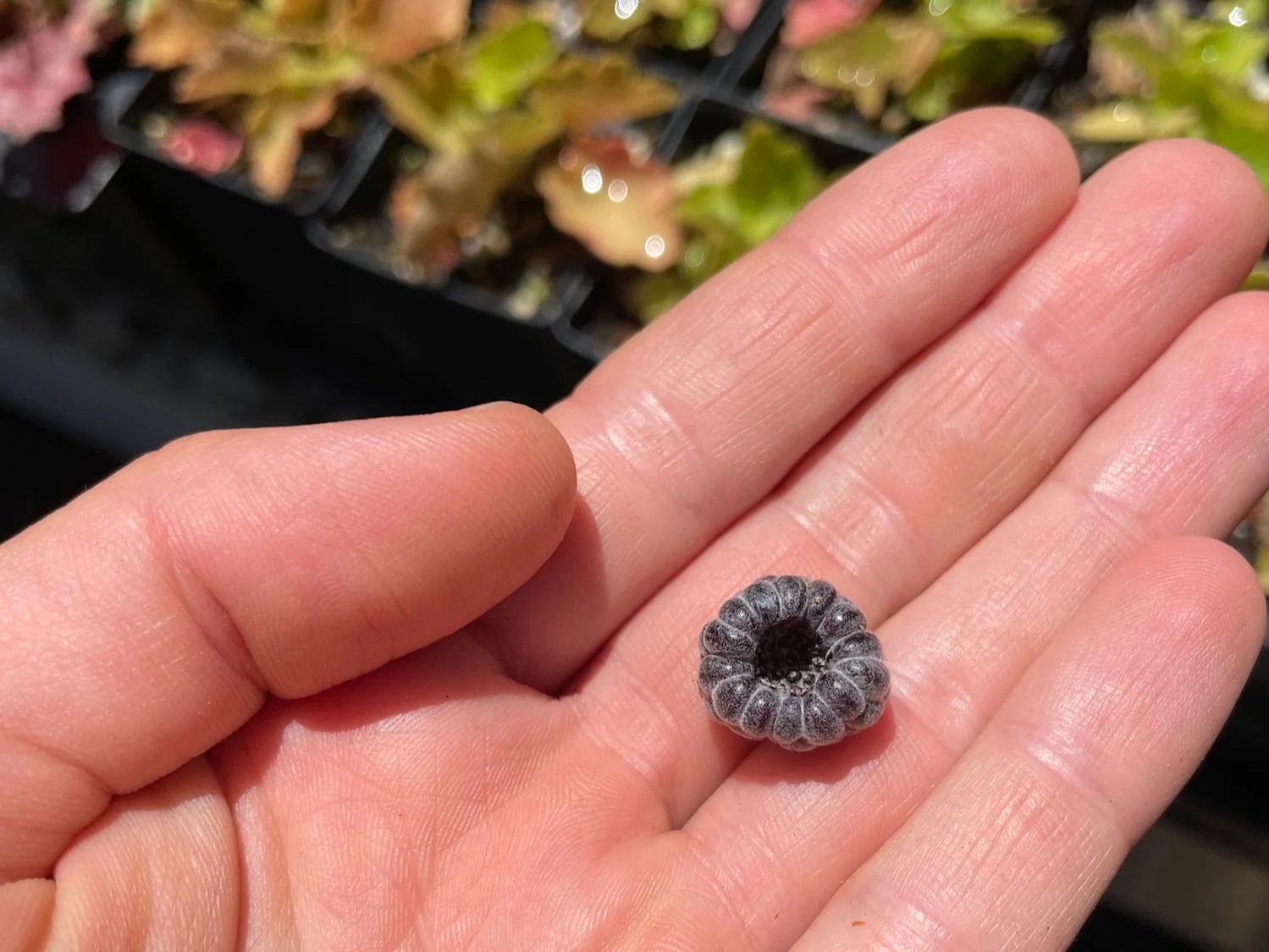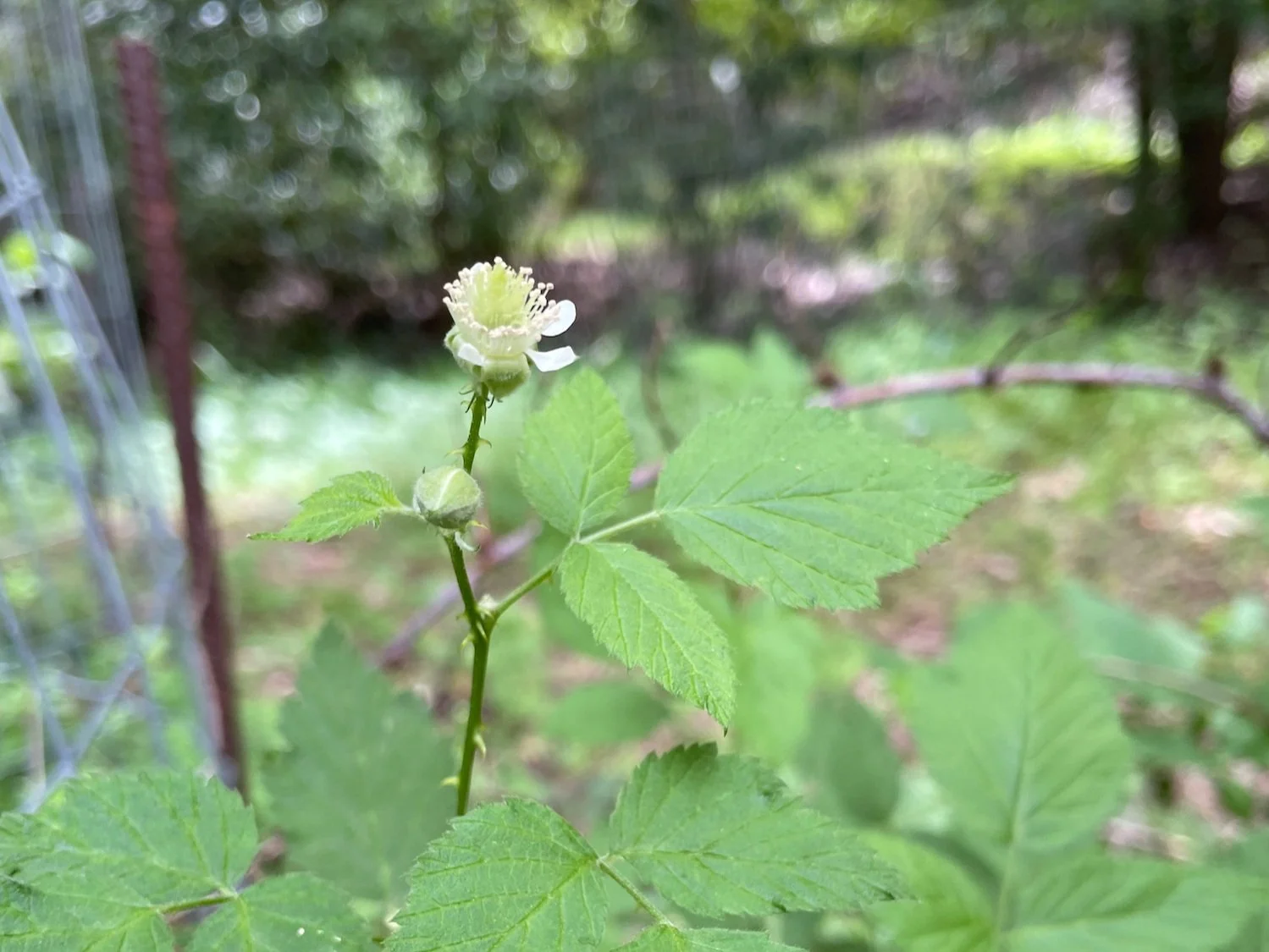May Native Plant of the Month: Blackcap Raspberry
About Blackcap Raspberry
Summer is the season for wild berries, and California is no exception. We enjoy a variety of edible fruits, ranging from Himalayan blackberry (Rubus armeniacus, a delicious species from Armenia that has become invasive in North America) to our native thimbleberry (Rubus parviflorus) and evergreen huckleberry (Vaccinium ovatum). These two native species are an important component of indigenous cuisines throughout California.
One of our less well-known berries is the blackcap raspberry (Rubus leucodermis), which can be found in the Santa Cruz Mountains. This deciduous shrub grows up to six feet tall and produces fruits that are dark purple to nearly black. At first glance, you may mistake them for blackberries, but like the red raspberries you find in the grocery store, they are hollow in the center once plucked off the plant.
Note: When foraging for wild berries, please only pick from plants where you know you have permission, either on your own property or with permission on a friend’s property. Foraging in many open spaces is not allowed. Only eat from plants that you have confidently identified and know are edible. Many wild fruits and berries are toxic to humans.
How to Grow Blackcap Raspberry
Blackcap raspberry grows best in partly shaded areas near creeks or other sources of moisture. In the garden, plant them in a spot that gets afternoon shade, and make sure they are watered during summer. In nature, they are often found in rocky soils, but can be grown in clay soil as well.
The raspberry produces prickly, arching stems—also known as canes—from its base. Some of the canes will arch all the way back to the ground and root into the soil to produce new raspberry plants. However, most canes only live for two years, producing raspberries in their second year before dying and turning brown. As the canes die off, you can prune them back to keep your plant looking tidy. Don’t worry, your plant will sprout new canes to replace the dead ones!
How to Buy Blackcap Raspberry and other Native Plants
Our nursery grows native plants like blackcap raspberry using seeds and cuttings carefully sourced from local watersheds. See our latest inventory for online sales here:
Other Readings
By Stanley Gu, Ecologist





